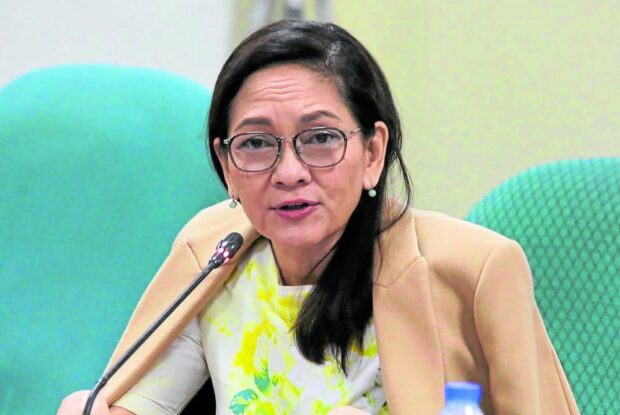A bill that prevents the government from freezing funds donated to human rights workers has been filed in the Senate as part of an initiative to institutionalize the protection of those championing civil liberties.
In filing Senate Bill No. 2447, or the proposed Human Rights Defenders Protection Act, Sen. Risa Hontiveros cited the government’s obligation to ensure the safety of groups and individuals working in defense of human rights.
Under Section 7 of the proposed law, “everyone, individually or in association with others, has the right to solicit, receive and utilize resources, from domestic and international organizations, including governmental, intergovernmental, philanthropic and private sources, for the express purpose of promoting and striving for the protection and realization of human rights and fundamental freedoms.”
Gov’t duty
“In pursuance of [this] right … freezing, sequestration or seizure by any bank or financial institution of the fund solicited from and released by the source is hereby prohibited,” the bill read in part.
Hontiveros said it was the government’s duty to bankroll programs on human rights education and to carry out investigations of incidents of harassment and attacks targeting human rights activists.
The bill also specified the freedoms and rights that the state should “respect, protect and promote,” such as the right to “solicit, receive and utilize resources.”
‘Terror financing’
Those provisions appeared to be in response to the government crackdown on groups and individuals accused of funding rights advocates tagged as communist rebels by the government, including members of the Rural Missionaries of the Philippines.
In 2019, the Anti-Money Laundering Council issued a freeze order on the bank account of the group of Catholic nuns for allegedly being involved in “terrorism financing.”
In her bill, Hontiveros said it was the constitutional duty of the state to safeguard the exercise of rights and freedoms of every Filipino.
However, she said, human rights abuses and the concomitant culture of impunity still persist in the country, particularly those allegedly committed by state forces against civilians and human rights advocates.
‘Crucial’
“This is why the role of human rights defenders is crucial as they protect, promote and strive for the realization of human rights and fundamental freedoms and welfare of the people,” Hontiveros said in an explanatory note to the bill.
The opposition senator lamented how human rights activists were often vilified and accused of being communist rebels for fighting for social justice and the protection of marginalized sectors.
“They are treated with contempt, even threatened with violence,” Hontiveros said.
Worse, she added, human right defenders were also “often subjected to summary execution, enforced disappearance, false labeling and Red-tagging (the practice of branding critics as communist rebels or sympathizers), and malicious prosecution.”
Killings, harassment
In June 2020, the United Nations Office of High Commissioner for Human Rights (OHCHR) published a report noting the “systematic human rights violations” in the Philippines.
The report “verified the killings of 208 human rights defenders, journalists and trade unionists, including 30 women, between January 2015 and December 2019.”
In a September 2022 report, the OHCHR said the country’s human rights problems persisted, citing the continued “harassment, threats, arrests, attacks, Red-tagging against civil society actors, as well as the continued drug-related killings by police.”
